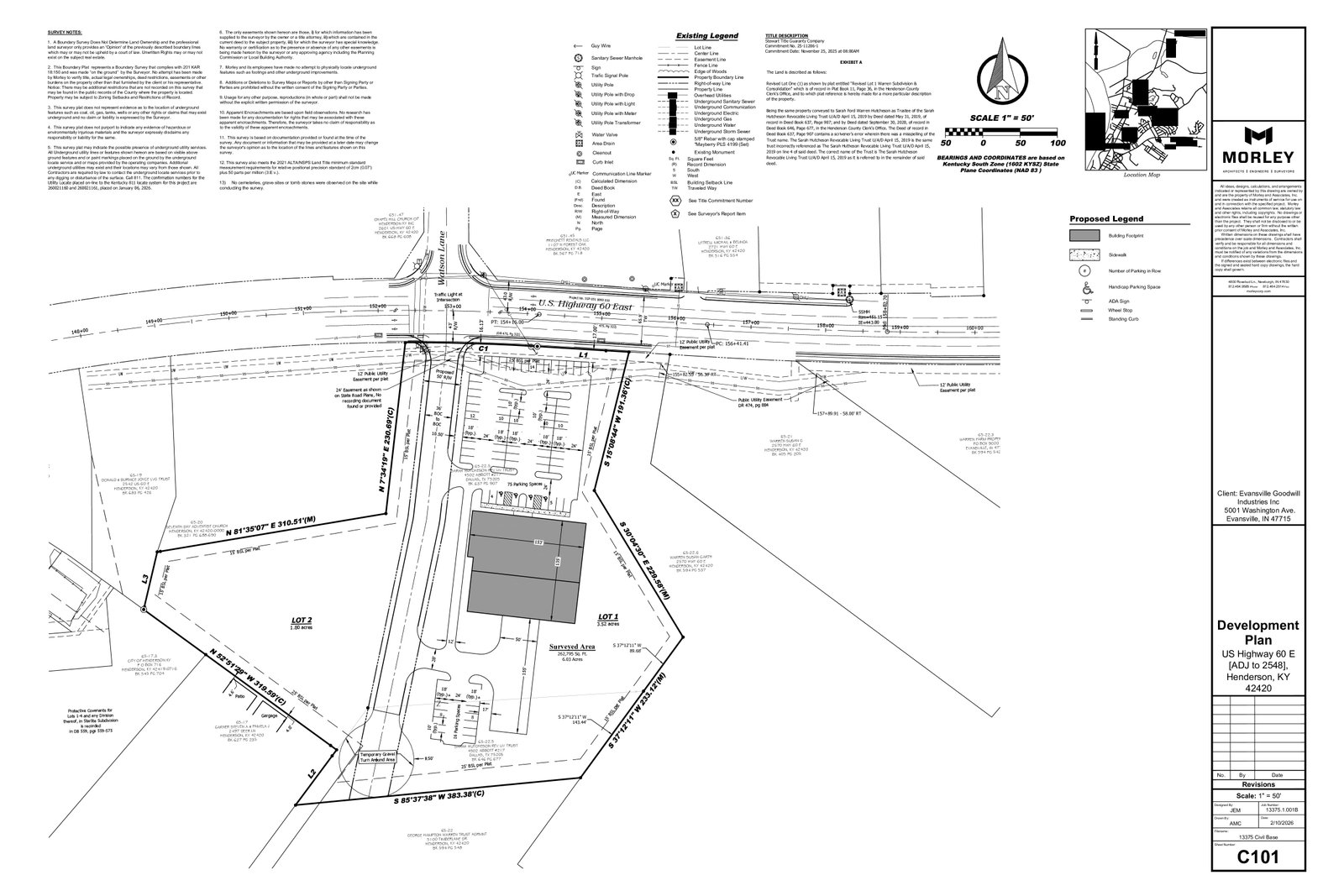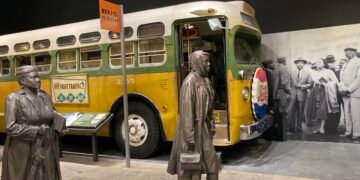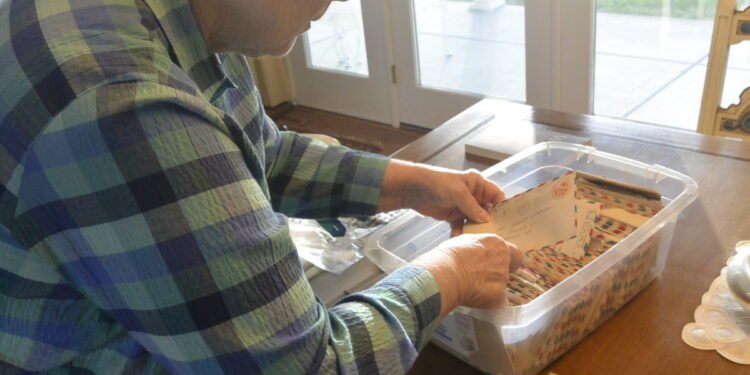Before Charles “Muggins” Sommers shipped off for basic training, he told his wife—“emphatically”—that he did not want to be placed into the infantry and he did not want to go to Camp Shelby in Mississippi.
The first chapter of Susie Thurman’s book about the wartime letters her father, Muggins, sent to her mother, WWII Letters from England: An American Soldier Writes Home, Book 1, relays the information that yes, Muggins was sent to Camp Shelby, and yes, he was placed in the infantry.
Thus begins a string of what would become more than 500 letters he wrote to Catherine “Buzz” Sommers, while he was in basic training, then officer candidate school and on to England where he served at the Royal Air Force Base Burtonwood, the United Kingdom’s largest airbase during World War II, located between Liverpool and Manchester.
Muggins and Buzz are nicknames of Thurman’s mother and father. Muggins was a nickname he picked up as a boy on the baseball diamond, and Buzz comes from her middle name and her mother’s maiden name, Busby.
With the letters, readers get a look at the day-to-day life of a military man, a member of the Greatest Generation, adjusting to his wartime life in a different country away from his love.
Muggins’ voice rings clear on the page, and after several letters, readers will probably already feel like he’s an old friend. His humor, his earnestness, maybe a bit of his mischievous side—what with his visits to the pubs that were close to the bases he was stationed at in England—all seem so real even now, 80 years after he wrote the letters.
Muggins was born in 1908. He spent a good portion of his working life dealing with words. He ran a business in Evansville, Service Linotype, where among other accounts, he set type for a variety of small school newspapers. Thurman says he always quipped about the poor grammar in some of those papers.
“He knew his stuff,” Thurman says of her father’s wordsmithing. In fact, later in life, his friends called him the “Word Man.” When Thurman used to get stumped on crossword puzzles, she could call her father, who she says always knew the word right away.
So it’s no surpise that Muggins could write well. His sentences are smooth, easy to read, and always clear in his points.
Another interesting piece of the books is that readers can see a bit of the evolution of the English language. For instance, his use of “swell” for “good,” “it beats me” for “I don’t know,” and “down in the mouth” for “sad or depressed” aren’t common expressions in modern language (though they still may be heard now and then).
Muggins didn’t finish high school, but not because of any academic difficulties. He went to school all the way through his junior year at Holy Name High School, but at about that time in 1925, his mother died and he dropped out, presumably, says Thurman, so he could help with family finances. His father was still alive, and he had three older sisters.
Soon after, he began a career as a linotype operator at The Gleaner, where he worked up to the time he left for the war and for a while after he returned. In 1930, he received a diploma from the International Typographic Union of North America.
Muggins’ life with words and sentences, and Thurman being around it all her young life, laid the groundwork for her own career, not only as a writer but also as a teacher. She taught at North Junior High School (now Middle School) for 16 years and then Henderson County High School for 11 years, before she began a 20-year stint teaching English and reading part-time at Henderson Community College. (Mike, her husband, also worked and taught at the college.)
Thurman also has written numerous other books, some with co-authors. She wrote the Henderson Post Card book. She wrote Currents with local writer Gail King. With former HCC professor Bill Gary, she’s written three college textbooks. And with Mike, she edited for 11 years Cottonwood Press, a newsletter for English teachers.
All her past writing was interesting, but her current book is special. It’s an homage to her father, whom she described as “the best dad in the world.”
The spark for writing the book came when she and Mike were visiting Scotland and England in 2019. Coming from Scotland, Thurman emailed John Cotterill, the RAF Burtonwood Heritage Centre’s manager, who picked them up upon arrival and ended up showing them around the town and the center.
At some point, Thurman mentioned to Cotterill that her father had written many letters to her mother when he was stationed at Burtonwood during the war. She offered to send him bits of information about Burtonwood that she gleaned from the letters.
“That’s when the rabbit hole opened up,” Thurman said.
Back home, she started poring through the letters, finding passages and information that might not only be of interest to Burtonwood history buffs but, as she grew more interested, also a general audience. She looked around and found there were one or two books about life at Burtonwood during the war from a UK perspective, but she didn’t find anything from an American soldier’s viewpoint, another piece of encouragement to write the book.
When Muggins died in 1980, Thurman didn’t know anything about the letters. Some time later, her mother mentioned the trove of letters he’d written still stored in a basement locker. She took a casual glance then but didn’t really investigate.
It’s a bit of a sore spot now that she didn’t read them thoroughly then. Thurman says a lot of questions surfaced as she worked through the letters that her mother could have answered. Her mother died in 1999.
Of course, Buzz was writing back to Muggins during the war at the same frenzied pace. But unlike Buzz at home in Henderson, Muggins had no place to store all the letters in the barracks and so he had to get rid of them, Thurman says. That also could have answered many questions.
Like in his civilian life, Muggins was involved with words and sentences at Burtonwood. At Camp Shelby, he was informed that he had been accepted into Officer Candidate School, which he eventually graduated from and received a commission. Part of his officer duties at Burtonwood was to censor the mail that was heading back to the U.S.
Thurman’s first compilation of the 255-page book, she says, was probably three times as long. She went back to it and made cuts, trying to show readers what he was allowed to write home about. There was much that wouldn’t be interesting to a reader, some of it repetitive, such as the constant rain in England and poker games, that also had to be cut. After an exhaustive process, and much work with an editor, she published the book in February.
Thurman decided against trying to find a traditional publisher and instead self-published. She says she wanted to get the book out as quickly as possible and knew that finding a publisher and then going through its processes could delay publication. And she says there was no guarantee she’d find an interested publisher.
Thurman says she often receives messages from readers who want to chat about the book. One common comment they make is how they wish they could have met Muggins.
“I feel like your dad is a friend of mine,” they say.
“I get that frequently and that makes me smile,” she says.

















